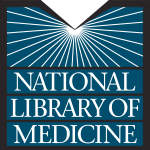- Industria: Library & information science
- Number of terms: 152252
- Number of blossaries: 0
- Company Profile:
The National Library of Medicine (NLM), on the campus of the National Institutes of Health in Bethesda, Maryland, is the world's largest medical library. The Library collects materials and provides information and research services in all areas of biomedicine and health care.
Epidemiological investigation designed to test a hypothesized cause-effect relationship by intentional change of a supposed causal factor in a population.
Industry:Biology; Chemistry
Epidemiological phenomenon observed initially in studies of occupational diseases: workers usually exhibit lower overall disease and death rates than the general population, due to the fact that the old, severely ill and disabled are ordinarily excluded from employment. Death rates in the general population may be inappropriate for comparison, if this effect is not taken into account.
Industry:Biology; Chemistry
Equation of the form:
pH = pKa – lg((HA)/(A<sup>–</sup>))
for the calculation of the pH of solutions where the ratio (HA)/(A<sup>–</sup>) is known and HA and A<sup>-</sup> are the hydronated and dehydronated forms of an acid, respectively.
Industry:Biology; Chemistry
Equipment (clothing, gloves, hard hat, respirator and so on) worn by an individual to prevent exposure to a potentially toxic substance
Industry:Biology; Chemistry
Erroneous terms used commonly in the toxicological literature but having no generally agreed meaning, sometimes even applied to nonmetals, and therefore a source of confusion and to be avoided. The term “metal” is adequate without the qualifying adjective but may be misleading since it implies a solid material when toxicological concern is mostly for the ionic form or another chemical species.
Industry:Biology; Chemistry
Erroneous terms used commonly in the toxicological literature but having no generally agreed meaning, sometimes even applied to nonmetals, and therefore a source of confusion and to be avoided. The term “metal” is adequate without the qualifying adjective but may be misleading since it implies a solid material when toxicological concern is mostly for the ionic form or another chemical species.
Industry:Biology; Chemistry
Establishment of a qualitative or quantitative relationship between hazard and benefit, involving the complex process of determining the significance of the identified hazard and balancing this against identifiable benefit.
Note: This may subsequently be developed into a risk evaluation.
Industry:Biology; Chemistry
Estimate of the adverse effects to health or risks likely to follow from a proposed or expected environmental change or development.
Industry:Biology; Chemistry
Estimate of the probability that harm will result from a defined exposure to a substance in an environmental medium. The estimate is valid only for a given species and set of conditions.
Industry:Biology; Chemistry
